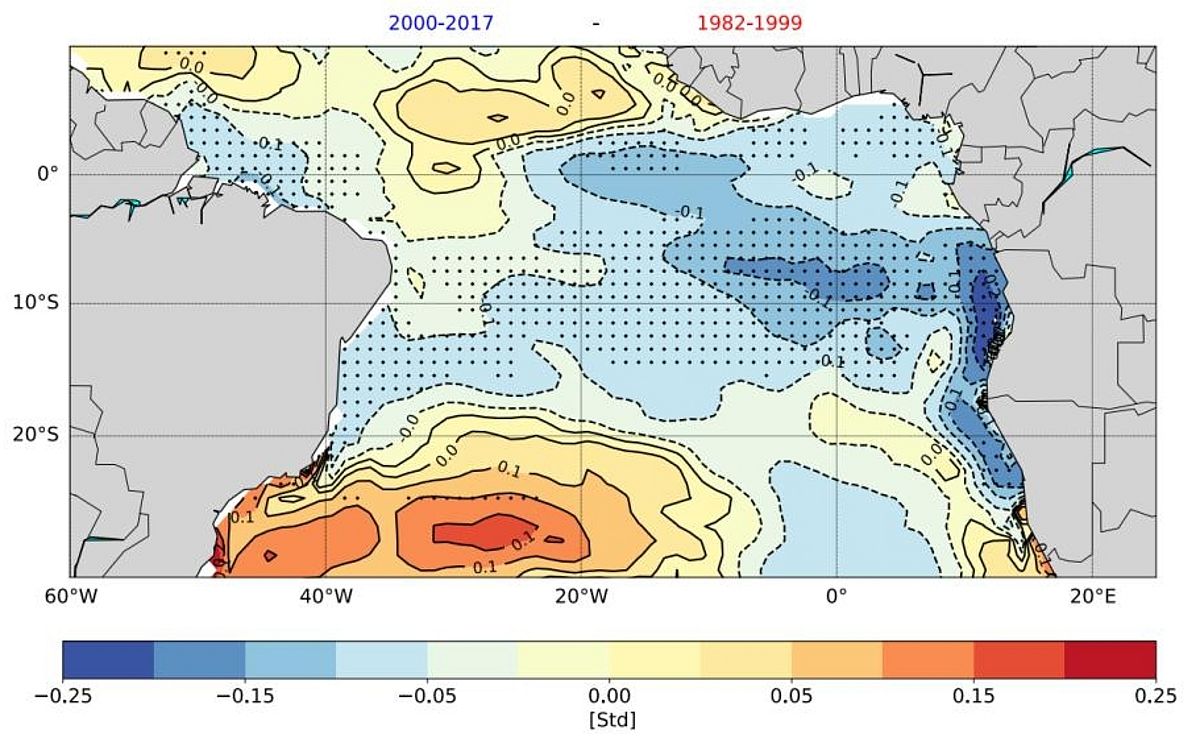Weakening of interannual SST variability in the Equatorial Southeastern Tropical Atlantic since 2000
Every few years the eastern equatorial and southeastern tropical Atlantic off Angola experiences anomalous warm events that are known as Atlantic and Benguela Niños, respectively. These events can affect fisheries and rainfall over Southwestern Africa. Since 2000, a substantial weakening in the equatorial and southeastern tropical Atlantic sea surface temperature (SST) variability is observed, as illustrated by the blue areas in the figure below, corresponding to less and weaker Atlantic and Benguela Niño events.
Prigent et al. (2020a) found that all three components of the Bjerknes feedback - a positive air-sea feedback involving the surface winds, SST and thermocline depth - have weakened in 2000-2017 relative to 1982-1999, suggesting the Bjerknes feedback has become less important in driving SST variability in the equatorial Atlantic. In addition, the thermal damping has doubled in strength since 2000, which may also have contributed to reducing the SST variability.
For the region off Angola, both equatorial remote forcing and local forcing are known to play an important role in driving the SST variability. Prigent et al. (2020b) could show that compared to 1982–1999, since 2000 equatorial remote forcing had less influence, whereas local forcing has become more important. In particular, the robust correlation between the equatorial zonal wind stress and the SST anomalies off Angola has substantially weakened, suggesting less influence of Kelvin waves on SST variations there.
References:
Prigent, A., J. F. Lübbecke, T. Bayr, M. Latif, and C. Wengel (2020a). Weakened SST variability in the tropical Atlantic Ocean since 2000, Clim. Dyn., 54, 2731-2744, https://doi.org/10.1007/s00382-020-05138-0
Prigent, A., R. A. Imbol Koungue, J. F. Lübbecke, P. Brandt, and M. Latif (2020b). Origin of weakened interannual sea surface temperature variability in the Southeastern Tropical Atlantic Ocean, Geophys. Res. Lett., 47, e2020GL089348, https://doi.org/10.1029/2020GL089348



